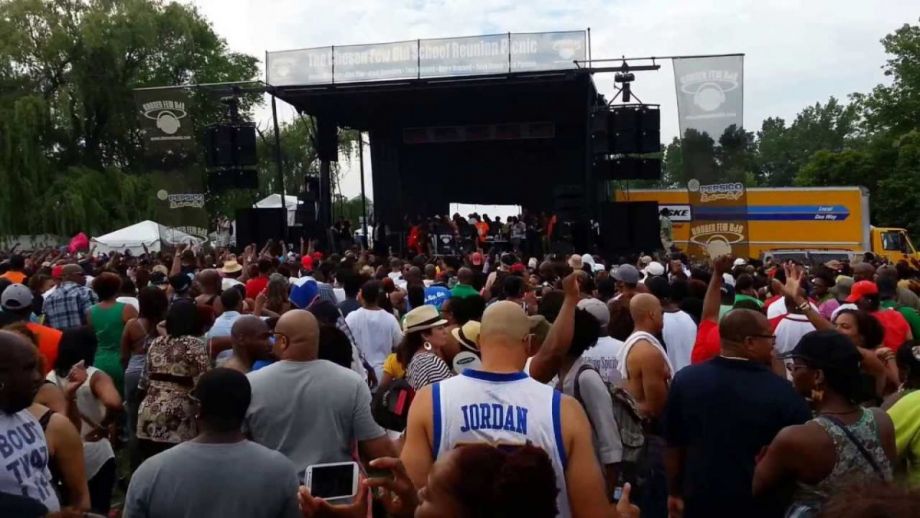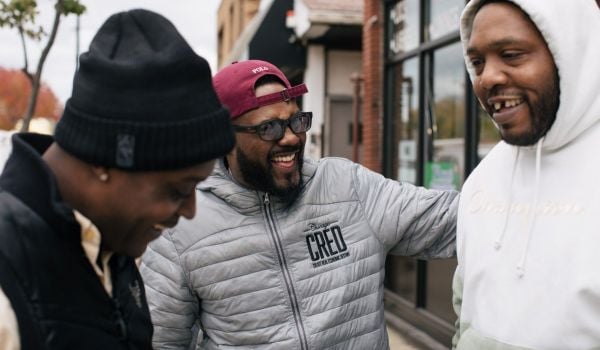In each episode so far, CNN docuseries Chicagoland has taken a break from the political and social crises in focus to shine a light on the city’s musical heritage. These detours have been, at times, braggadocio. For instance, Mayor Rahm Emanuel boasted last week that Chicago is the true home of rock and roll. Yeah, he’s got an argument, but I’m not sure the Windy City wins that title outright.
But this week’s musical break is easily the most poignant yet. Let me back up some: Episode Three continues the series’ focus on Chicago’s murder epidemic and shows us that as spring turns to summer, no one expects the murder rate to improve anytime soon. As scientists from the Centers for Disease Control and Prevention have observed since at least the 1980s, homicides spike nationally during the summertime. In Chicago, it’s the same story. The city saw 29 homicides in February 2012. That August, it saw 57.
When we see Fenger High School principal Liz Dozier again, she describes her loathing for the season she now associates with losing students. “I can’t wait for this shit to be over,” she says.
July, though, is also the time for the Chosen Few Old School Reunion Picnic, a 24-year-old festival that features pioneering house DJs. As we hear from house legends like Alan King and Terry Hunter, we get another reminder: The electronic dance music that has become an international soundtrack for getting “slizzered” and living out some Barcelona rave fantasy really has its origins in Chicago’s club scene. As much as a new David Guetta song makes many of us cringe, there’s no denying that its pulse is what DJs have come to rely on to keep partygoers buzzing. Today, EDM is the sound of summer, and that sound finds its roots in Chicago.
This episode also takes some notes on narrative from The Wire, David Simon’s now-classic HBO drama, while delving further into the murder rate. Let’s be real: The Wire is part of the reason why we watch these shows. It layered the municipal systems as an interlocking web and made the overlapping sectors compelling to watch. Chicagoland follows that model when it takes us to an emergency room and introduces Dr. Andrew Dennis, an ER surgeon. As Dennis works to save a life, the producers attempt to spin some spider silk by cutting to DNAInfo reporter Erica Demarest as she takes down details on a recent shooting. The man’s life is lost, Demarest begins to work on the obit, and Dennis voices his disappointment. The toll on everyone is obvious. The web is laid out, clear and plain.
This is a web, however, informed and arranged by a journalistic understanding of what’s most dire. Undoubtedly, the number of homicides has traumatized mourning loved ones and, by extension, shaped the lives of those who work to respond to the crisis. But if the police superintendent has called the gang problem “intractable,” is it too odd to wonder how the series’ focus compares with Chicago’s priorities and, indeed, the national consciousness? When the city is stressed with balancing the books and restructuring its school district, or when a house beat wins you over takes your mind to a place of carefree abandon, where, exactly, does the murder rate fall on overall agenda?
Herein lies the challenge of producing specials like Chicagoland: How can the good and necessary work of putting a name to a statistic — of telling us that his name was Jerimiah Milsap, and that he distinguished himself as a decorated Navy sailor and survived the War on Terror only to die in Chicago — reverberate beyond an hour of Thursday-night cable television? These stories should be calls for action, but calls to whom, exactly? I brought this up last Friday, but at this point I feel like the producers could give us a separate eight-part docuseries on crime prevention tactics alone.
At the Chosen Few Picnic, we hear from a man who says he hasn’t forgotten about the spate of gun deaths, but lets on that the music at the festival is a means of taking his mind off it. “If all you hear is Chiraq,” he says, “all you gon’ think about is Chiraq.”
Chiraq is a portmanteau alluding to the fact that for multiple years, Chicago’s homicide toll was higher than the rate of American casualties registered in Iraq and Afghanistan. Just like the festival-goer described, that comparison has dominated my thoughts after seeing last night’s episode. Perhaps, that justifies the way Chicagoland has laid these first three episodes out.

Cassie Owens is a regular contributor to Next City. Her writing has also appeared at CNN.com, Philadelphia City Paper and other publications.
Follow Cassie .(JavaScript must be enabled to view this email address)















